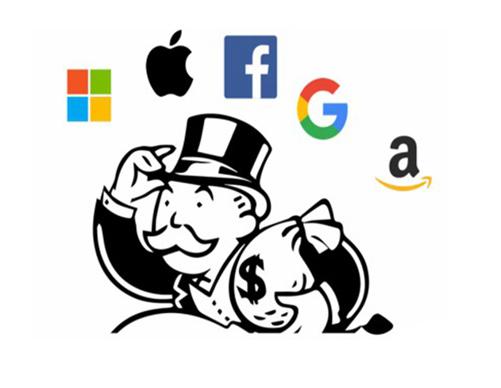You are here
Happy anniversary Internet
By Jean-Claude Elias - Mar 14,2019 - Last updated at Mar 14,2019
This week the focus of the IT world, and therefore in a certain way of the whole word, has been on celebrating the 30th anniversary of the World Wide Web. Ample mentions of its inventor, Sir Tim Berners-Lee can be found on countless sites and online news.
In addition to some of the famous quotes by the celebrated British engineer, such as “You affect the world by what you browse” for instance, the most noticeable comments by the man himself have been about some of the negative aspects of the Internet: hacking, abuse, lack of ethics, the isolating syndrome, the dark web and so forth. Yet, and according to marketresearchupdates.com, Berners-Lee believes that “the web can still be saved”.
Weighing the arguments in favour and against would be quite an undertaking. We all know the good and the bad about using the network and to what extent it is affecting our lives. However, regardless of what changes may take place in the WWW in the next 30 years, there is a strange, rather chilling parallel to draw between it and nuclear energy.
In August 1939, in a letter now famous to US president Roosevelt, Albert Einstein warned about the potentially destructive use of the recently discovered and tested nuclear energy; atomic fission more precisely. Einstein vision was such that he anticipated the military application of atomic energy as bombs, and feared that the usage of the scientific discovery, a direct consequence of his own theories on relativity, was probably not going to remain pacific or restricted to civilian use. The rest is history we all know too well.
So in both cases the scenario reads as follows. First a scientist makes a major discovery or makes his invention a reality. Then he realises that the world is probably not going to use it just for the well-being of mankind, and finally he warns about the possible dire consequences; but by then it is a little too late.
Of course, the Internet is not exactly an atomic bomb. The implications, however, are as far reaching if not more. Whereas military denuclearisation is still possible, though improbable, stopping, deactivating or even restricting the WWW in any way is not conceivable at all. The very notion of global networking is something huge, gigantic, and we have become absolutely dependent on its presence and its good functioning.
Apart from the clearly positive or negative sides of the web, there are still grey areas such as taxes for instance. Some countries in Europe, with France in the lead, are considering introducing flat taxes on GAFA (Google, Apple, Facebook, Amazon). This is not a simple matter; it is difficult to define, even more so to implement, and it can backfire, what is more. At this point it is only in the news, and already opposing reactions from the US side can be heard.
Nations are trying hard to set rules, to updates their laws so as to adapt to the Internet, this at various levels: security, taxes, trade, terrorism and human rights. However fast they try to act and to legislate or regulate, the web is going even faster. It is a case of “catch me if you can”.
In the 1980s computers were a big thing. It is not the case anymore, now the real big thing is the web and computers are mere tools or accessories that are made just to let us use the web.
It is good to read that Sir Tim Berners-Lee is optimistic about the future of the web he invented, for we simply cannot imagine for a second that we would give up on it. However, by merely saying that it “can still be saved” he is acknowledging that at least part of it already is in a very bad shape.
Related Articles
By Guy Faulconbridge and Paul SandleLONDON — Silicon Valley technology giants such as Facebook and Google have grown so dominant they may ne
The inventor of the world wide web, Tim Berners-Lee, called on Wednesday for bill of rights to protect freedom of speech on the Internet and users‘ rights after leaks about government surveillance of online activity.
Get ready to see more red warning signs online as Google adds ammunition to its technological artillery for targeting devious schemes lurking on websites.












